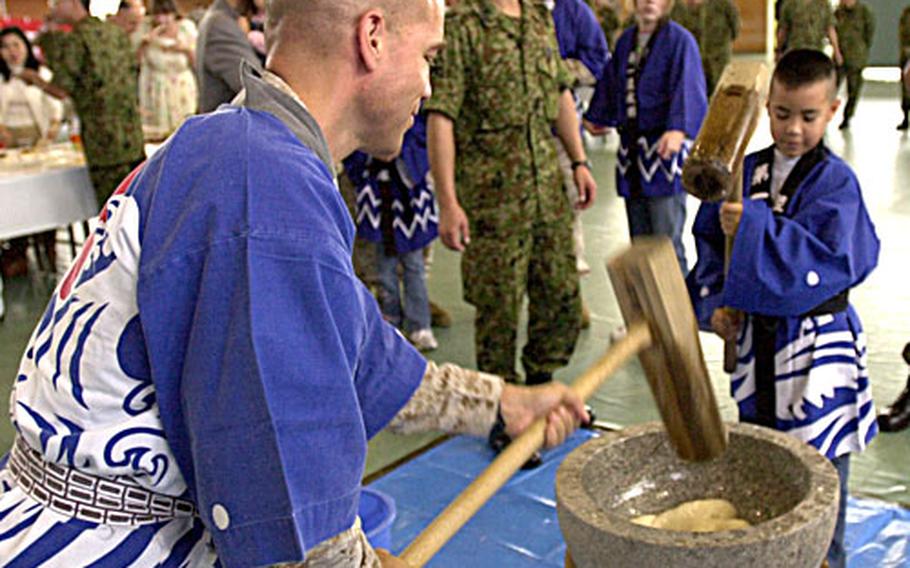
Col. James Adams, with 1st Marine Aircraft Wing, and his son William, 8, pound rice into a paste used to make mochi, a Japanese rice cake traditionally eaten during the new year season, at the Japanese Ground Self-Defense Force's 2006 Rice Pounding Ceremony at Camp Naha, Okinawa, on Wednesday. William said the mallet was heavy, but it was fun to swing and he planned to try some of the mochi balls he helped pound. (Cindy Fisher / Stars and Stripes)
NAHA, Okinawa — More than 110 American servicemembers and their families visited the Japanese Ground Self-Defense Force’s Camp Naha on Wednesday to experience a Japanese way of welcoming the new year: pounding rice into mochi.
“It was a great stress reliever,” Marine Capt. Jeremy Soule said.
Mochi is a rice cake thought to bring good luck and is eaten the first day of the new year.
After a how-to demonstration, Maj. Gen. Mary Ann Krusa-Dossin, commander for Marine Corps Base Camp Butler, and Maj. Gen. Mamoru Fujisaki, commander of the JGSDF’s 1st Combined Brigade, grabbed mallets and swung into action.
Soon the floors were shuddering as Americans and Japanese using heavy wood mallets pounded sticky rice in stone mortars into mochi paste.
“If you’re really angry, you could just smoosh it,” said D’Ondra Donaldson, 10, daughter of 10th Army Support Group’s Command Sgt. Maj. Larry Donaldson.
The gummy dough is then rolled and sometimes mixed with sesame seed powder and sweet bean paste.
“They made pretty good rice dough,” said the 1st Combined Brigade’s 1st Sgt. Tetushiro Takeichi, who helped Americans pound rice.
“Pretty good” was the general consensus of Americans trying mochi for the first time.
For newcomer Navy Capt. Gerard R. Cox, executive officer at U.S. Naval Hospital Okinawa, the day was a chance for him and his family to try new foods and experience Japanese culture.
With the mochi pounded and tasted, Takeichi said: “Now I am ready for the new year.”